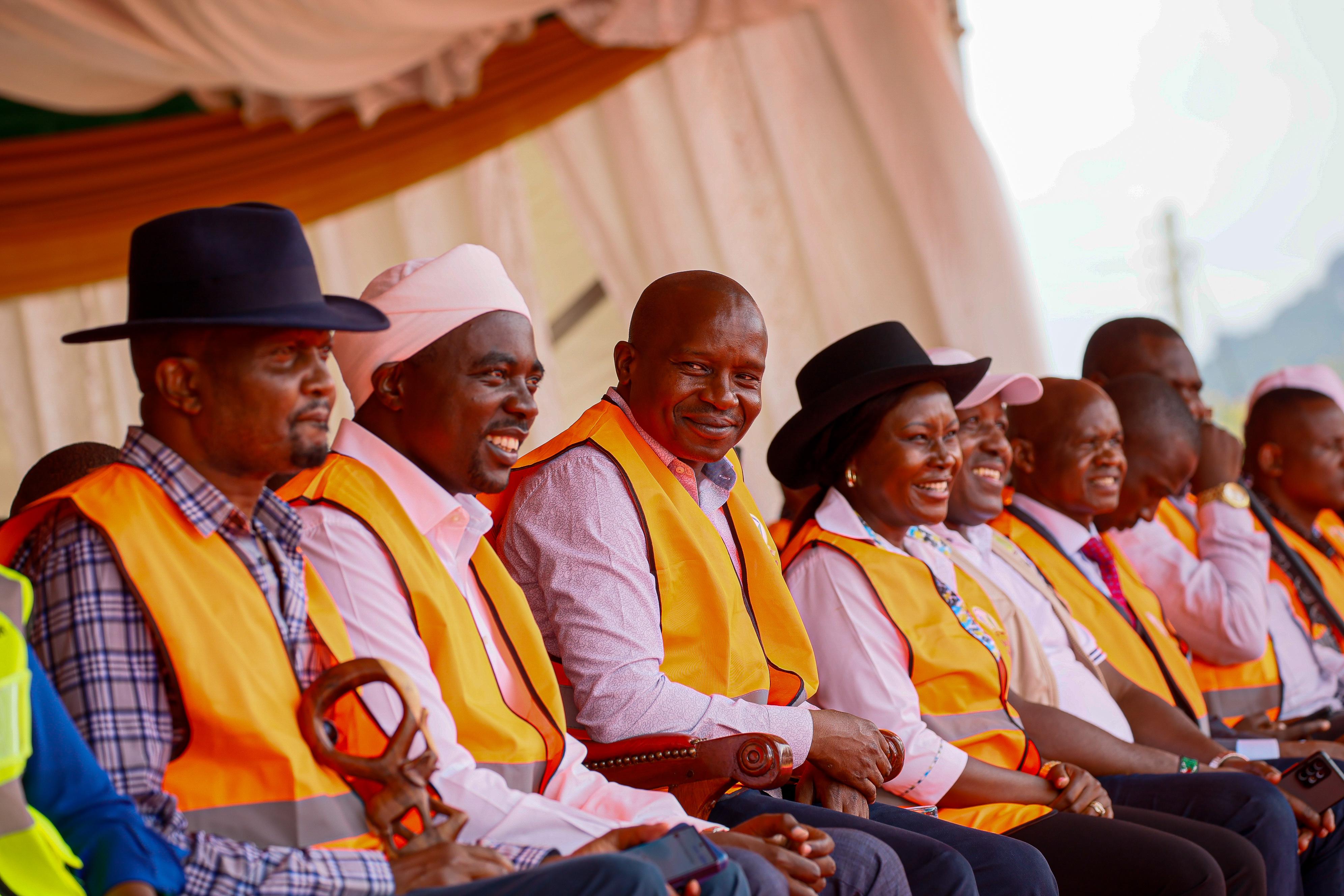![[PHOTOS] Kindiki ditches high-end car for boda boda in Embu summit](/_next/image?url=https%3A%2F%2Fcdn.radioafrica.digital%2Fimage%2F2025%2F02%2F886f0147-26c7-47ad-8136-65fc5c15a01b.jpeg&w=3840&q=100)
[PHOTOS] Kindiki ditches high-end car for boda boda in Embu summit
The DP is in Embu for the County Boda boda Summit.
“The price of fuel and basic food items was very high, but two years later, we are in a better space."
In Summary
 Deputy President Kithure Kindiki in Embu for the Bodaboda
summit on February 1, 2025/DPCS
Deputy President Kithure Kindiki in Embu for the Bodaboda
summit on February 1, 2025/DPCSDeputy President Kithure Kindiki has said that it has not been easy for President William Ruto to stabilise the economy in the last two years.
The DP said that the President was tasked with stabilising an economy that was on its knees.
Speaking on Saturday at the Boda Boda summit in Embu, Kindiki said the past two years was hard due to global challenges resulting from the Covid-19 pandemic.
“You can imagine shutting down the economy for more than one and a half years in 2020 and 2021. Inflation had gone so high. The value of Kenya shilling had taken a huge beating against foreign currencies,” the DP said.
“The price of fuel and basic food items was very high, but two years later, we are in a better space.”
Kiniki said the bold decisions President Ruto made, including subsidising production as opposed to consumption, have shown great value and success.
He further said the government's major task is putting more money in the pockets of our citizens by focusing on the value chains that contribute to the livelihoods of the vast majority of our citizens.
This, he said, includes agriculture, livestock, fisheries, mining, blue economy, and manufacturing.
According to the DP, there are 36 billion shillings for the last-mile electricity connectivity and rural electrification projects across the country.
“We believe that electricity will not only light our houses in the rural areas but also create opportunities for value addition and job creation for welders, salons, and barbers.”
Kindiki called on Kenyans yet to register under the Social Health Authority to do so to be able to reap the health benefits.
Kindiki said the government is listening to feedback from Kenyans on areas that need improvement.
He said since the rollout of the new SHA programme, 18.5 million Kenyans have registered, compared to just nine million who were registered under the now-defunct National Health Insurance Fund (NHIF).
"We want to push that figure upwards so that every Kenyan will have a medical cover card. It will help you whether employed or not and whether you are poor or rich," he said.
He said the government has heard what leaders have said and will improve the programme to ensure no Kenyan is oppressed in payment.
![[PHOTOS] Kindiki ditches high-end car for boda boda in Embu summit](/_next/image?url=https%3A%2F%2Fcdn.radioafrica.digital%2Fimage%2F2025%2F02%2F886f0147-26c7-47ad-8136-65fc5c15a01b.jpeg&w=3840&q=100)
The DP is in Embu for the County Boda boda Summit.